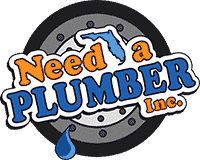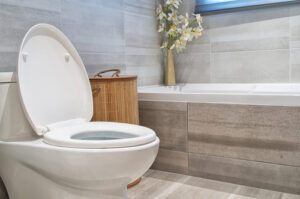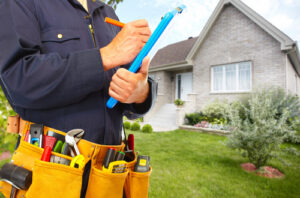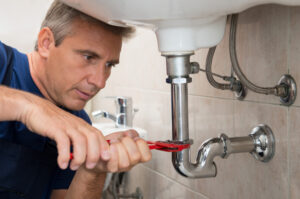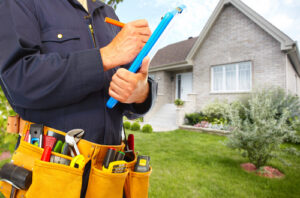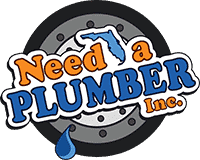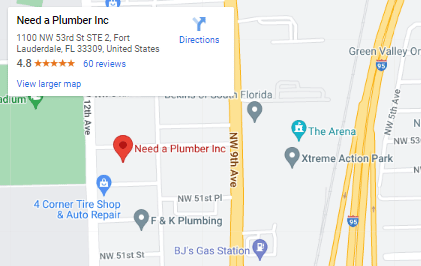Clogs in drains are a common and frustrating household problem. They can cause slow drainage, unpleasant odors, and even sewage backups. Fortunately, there are several simple steps you can take to prevent clogs in your drains. In this article, we will discuss some of the most effective methods for keeping your drains clear and flowing smoothly.
1. Dispose of Waste Properly
One of the most common causes of clogs in drains is improper waste disposal. To prevent clogs, it is important to dispose of waste properly. This means avoiding flushing anything other than toilet paper down the toilet and not pouring grease or other liquids down the sink.
2. Use Drain Covers
Using drain covers can help prevent clogs by catching hair, soap scum, and other debris before they can enter your drain. Drain covers are available at most hardware stores and are easy to install. They are especially useful in showers and tubs, where hair is a common cause of clogs.
3. Clean Your Drains Regularly
Regularly cleaning your drains can help prevent clogs from forming. There are several methods you can use to clean your drains, including using a plunger, a drain snake, or a commercial drain cleaner. It is important to follow the manufacturer’s instructions when using a drain cleaner and to avoid using these products too frequently, as they can damage your pipes over time.
4. Install a Garbage Disposal
If you do not already have a garbage disposal, consider installing one. Garbage disposals can help prevent clogs by grinding up food waste before it enters your pipes. Be sure to run plenty of water while using your garbage disposal to ensure that the waste is properly flushed down the drain.
5. Use Hot Water
Running hot water down your drains can help prevent clogs by melting and flushing away grease and other substances that can accumulate in your pipes. You can also try adding a small amount of dish soap to the hot water to help break up any buildup.
6. Be Careful What You Flush
In addition to avoiding flushing anything other than toilet paper down the toilet, it is important to be careful what you flush. Items such as feminine hygiene products, wipes, and cotton swabs can easily become stuck in your pipes and cause clogs.
7. Consider a Drain Strainer
If you have a garbage disposal, a drain strainer can be a useful tool for preventing clogs. Drain strainers fit over the opening of your drain and can catch small particles of food that may slip past your garbage disposal. They are easy to remove and clean and can be found at most hardware stores.
8. Schedule Regular Plumbing Maintenance
Regular plumbing maintenance can help prevent clogs by identifying and fixing any potential issues before they become major problems. It is recommended that you have your plumbing inspected and maintained by a professional at least once a year.
9. Don’t Ignore Slow Drains
If you notice that your drains are draining more slowly than usual, don’t ignore the problem. Slow drains are often a sign of a clog that is starting to form. Taking action early can help prevent the clog from becoming more severe.
10. Use Enzyme Cleaners
Enzyme cleaners are a natural and effective way to prevent clogs. These cleaners use enzymes to break down and digest organic waste, such as food particles and soap scum. They are safe for use in all types of plumbing and can be found at most hardware and home improvement stores.
Conclusion
Preventing clogs in your drains is an important part of maintaining your home’s plumbing system. By following the tips outlined in this article, you can help prevent clogs and keep your drains flowing smoothly. Proper waste disposal, the use of drain covers, regular cleaning, the installation of a garbage disposal, the use of hot water, being careful what you flush, using a drain strainer, scheduling regular plumbing maintenance, not ignoring slow drains, and using enzyme cleaners are all effective methods for preventing clogs.
Taking these simple steps can help you avoid the hassle and expense of dealing with a clogged drain. By following these tips, you can keep your plumbing system in good condition and enjoy worry-free drainage for years to come.
FAQs
- What should I do if I already have a clog in my drain?
If you already have a clog in your drain, there are several methods you can try to remove it. Using a plunger, a drain snake, or a commercial drain cleaner can all be effective ways to clear a clog. If these methods do not work, it may be necessary to call a professional plumber.
- How often should I clean my drains?
It is recommended that you clean your drains at least once a month to prevent clogs from forming. However, if you have a lot of hair or other debris in your drains, you may need to clean them more frequently.
- Can I pour bleach down my drains to prevent clogs?
While bleach can help remove odors and kill bacteria in your drains, it is not an effective method for preventing clogs. In fact, pouring bleach down your drains too frequently can damage your pipes and cause other plumbing problems.
- Are enzyme cleaners safe for septic systems?
Yes, enzyme cleaners are safe for use in septic systems. In fact, they can help improve the performance of your septic system by breaking down organic waste and reducing the need for pumping.
- Why should I schedule regular plumbing maintenance?
Regular plumbing maintenance can help identify and prevent potential problems before they become major issues. It can also help extend the life of your plumbing system and save you money on costly repairs in the long run.
